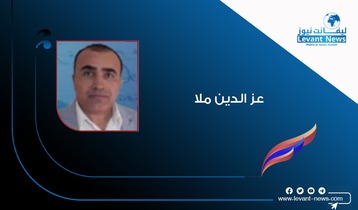-
Federalism: A Salvation or a Division? A Study of the Experiences of Iraq and Syria

Introduction
When the central state collapses and the voices of marginalized identities rise, the big question arises: Can federalism be a lifeline or a recipe for explosion? In Iraq, the Kurdistan Region was born from the ashes of wars and sanctions, while in Syria, a system of self-administration has formed amid the dust of battles. Both projects raise the banner of federalism, but the paths are divergent, and the outcomes are uncertain. This article delves into the depths of these intertwined experiences, analyzing the challenges, examining the potentials, and attempting to answer: Can the Kurds in Syria draw inspiration from the model of Iraqi Kurdistan? And is federalism still a viable project in the Middle East, or is it a postponed dream?
First: Federalism as a Political Theory
Federalism is defined as a constitutional political system based on the distribution of power between a central government and regional units, so that sovereignty is exercised in a dual and integrated manner. Federations often emerge as a result of a political agreement between previously independent entities or as a reaction to central tyranny.
Among its most notable advantages are:
- Enhancing political participation.
- Protecting minorities.
- Encouraging local development.
- Reducing secessionist tensions.
However, these advantages can only be realized with a democratic political culture, strong institutions, and fair distribution of wealth.
Second: Successful and Failed Federations Around the World
Federations can be classified into two main types:
- Successful Federations:
- The United States: where the federal system has been cohesive for over two centuries.
- Germany: developed a "cooperative federation" after World War II.
- Switzerland: a model to emulate for its linguistic and religious diversity within a strict federal system.
- Struggling or Failed Federations:
- Yugoslavia: where federalism led to separation due to the absence of a unifying national identity.
- Ethiopia: experienced a partial breakdown of relations between the center and the regions and the outbreak of internal conflicts.
Third: The Iraqi Experience – An Immature Federation?
The Iraqi constitution of 2005 established the federal system as the legal framework for rebuilding the state after the fall of the central government. Although the constitutional text is clear in guaranteeing the rights of regions, practical application has been largely limited to the Kurdistan Region.
The Kurdistan Region as a Model
The region has an independent government, parliament, security forces (Peshmerga), and significant authority over its natural resources. However, it has faced recurring crises with Baghdad, the most notable being:
- Disputes over oil revenues.
- The status of disputed territories.
- Freezing the region's financial budget.
Internally, the region suffers from:
- Political disputes over power.
- Regional external interventions.
It is a case of "semi-federalism," successful at the administrative level but struggling regarding internal democracy and institutional building.
Fourth: Kurdish Federalism in Syria – A Project in Formation?
The "Self-Administration of North and East Syria" was declared in 2014, evolving into a "Democratic Federation" in 2016, led by the Syrian Democratic Forces and the Democratic Council of Syria.
Despite limited international recognition, the self-administration has achieved some important steps:
- Establishing local civilian institutions.
- Providing relatively stable services.
- Involving diverse components (Arabs, Kurds, Assyrians) in local governance.
However, the challenges are significant, including:
- The Syrian government's and opposition's rejection of federalism, considering it a "separatist project."
- Geographical, political, and economic blockades from Turkey and some regional powers.
- Accusations of dependency on the Kurdistan Workers' Party (PKK), which diminishes its international legitimacy.
Therefore, this federation remains in a gray area: it is neither a recognized state nor an active part of the existing Syrian state.
Fifth: Can Syrians, especially Kurds, Benefit from the Iraqi Experience?
What can be learned:
1. Constitutional Recognition of Pluralism
The Iraqi constitution recognizes national and religious diversity, and Syria could adopt a similar model if a new consensus constitution is produced.
2. Establishing Effective Local Institutions
Similar to the Kurdistan Parliament and its government, the self-administration can develop its institutions within a Syrian national framework.
3. Language and Cultural Identity
Allowing space for local languages and cultures within the educational and media systems enhances coexistence rather than conflict.
What to be cautious about:
1. Ongoing Conflict with the Center
The Iraqi experience has
By: Mahin Sheikhani
You May Also Like
Popular Posts
Caricature
BENEFIT Sponsors BuildHer...
- April 23, 2025
BENEFIT, the Kingdom’s innovator and leading company in Fintech and electronic financial transactions service, has sponsored the BuildHer CityHack 2025 Hackathon, a two-day event spearheaded by the College of Engineering and Technology at the Royal University for Women (RUW).
Aimed at secondary school students, the event brought together a distinguished group of academic professionals and technology experts to mentor and inspire young participants.
More than 100 high school students from across the Kingdom of Bahrain took part in the hackathon, which featured an intensive programme of training workshops and hands-on sessions. These activities were tailored to enhance participants’ critical thinking, collaborative problem-solving, and team-building capabilities, while also encouraging the development of practical and sustainable solutions to contemporary challenges using modern technological tools.
BENEFIT’s Chief Executive Mr. Abdulwahed AlJanahi, commented: “Our support for this educational hackathon reflects our long-term strategic vision to nurture the talents of emerging national youth and empower the next generation of accomplished female leaders in technology. By fostering creativity and innovation, we aim to contribute meaningfully to Bahrain’s comprehensive development goals and align with the aspirations outlined in the Kingdom’s Vision 2030—an ambition in which BENEFIT plays a central role.”
Professor Riyadh Yousif Hamzah, President of the Royal University for Women, commented: “This initiative reflects our commitment to advancing women in STEM fields. We're cultivating a generation of creative, solution-driven female leaders who will drive national development. Our partnership with BENEFIT exemplifies the powerful synergy between academia and private sector in supporting educational innovation.”
Hanan Abdulla Hasan, Senior Manager, PR & Communication at BENEFIT, said: “We are honoured to collaborate with RUW in supporting this remarkable technology-focused event. It highlights our commitment to social responsibility, and our ongoing efforts to enhance the digital and innovation capabilities of young Bahraini women and foster their ability to harness technological tools in the service of a smarter, more sustainable future.”
For his part, Dr. Humam ElAgha, Acting Dean of the College of Engineering and Technology at the University, said: “BuildHer CityHack 2025 embodies our hands-on approach to education. By tackling real-world problems through creative thinking and sustainable solutions, we're preparing women to thrive in the knowledge economy – a cornerstone of the University's vision.”
opinion
Report
ads
Newsletter
Subscribe to our mailing list to get the new updates!






















